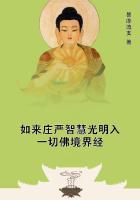In short, the practically cognized present is no knife-edge, but a saddle-back, with a certain breadth of its own on which we sit perched, and from which we look in two directions into time.The unit of composition of our perception of time is a duration , with a bow and a stern, as it were -- a rearward -- and a forward-looking end. It is only as parts of this duration-block that the relation of succession of one end to the other is perceived.
We do not first feel one end and then feel the other after it, and from the perception of the succession infer an interval of time between, but we seem to feel the interval of time as a whole, with its two ends embedded in it.The experience is from the outset a synthetic datum, not a ****** one; and to sensible perception its elements are inseparable, although attention looking back may easily decompose the experience, and distinguish its beginning from its end.
When we come to study the perception of Space, we shall find it quite analogous to time in this regard.Date in time corresponds to position in space; and although we now mentally construct large spaces by mentally imagining remoter and remoter positions, just as we now construct great durations by mentally prolonging a series of successive dates, yet the original experience of both space and time is always of something already given as a unit, inside of which attention afterward discriminates parts in relation to each other.Without the parts already given as in a time and in a space, subsequent discrimination of them could hardly do more than perceive them as different from each other; it would have no motive for calling the difference temporal order in this instance and spatial position in that.
And just as in certain experiences we may be conscious of an extensive space full of objects, without locating each of them distinctly therein; so, when many impressions follow in excessively rapid succession in time, although we may be distinctly aware that they occupy some duration, and are not simultaneous, we may be quite at a loss to tell which comes first and which last; or we may even invert their real order in our judgment.In complicated reaction-time experiments, where signals and motions, and clicks of the apparatus come in exceedingly rapid order, one is at first much perplexed in deciding what the order is, yet of the fact of its occupancy of time we are never in doubt. ACCURACY OF OUR ESTIMATE OF SHORT DURATIONS.
We must now proceed to an account of the facts of time-perception in detail as preliminary to our speculative conclusion.Many of the facts are matters of patient experimentation, others of common experience.
First of all, we note a marked difference between the elementary sensations of duration and those of space.The former have a much narrower range; the time-sense may be called a myopic organ, in comparison with the eye, for example.The eye sees rods, acres, even miles, at a single glance, and these totals it can afterward subdivide into an almost infinite number of distinctly identified parts.The units of duration, on the other hand, which the time-sense is able to take in at a single stroke, are groups of a few seconds, and within these units very few subdivisions -- perhaps forty at most, as we shall presently see -- can be clearly discerned.The durations we have practically most to deal with -- minutes, hours, and days -- have to be symbolically conceived, and constructed by mental addition, after the fashion of those extents of hundreds of miles and upward, which in the field of space are beyond the range of most men's practical interests altogether.To 'realize' a quarter of a mile we need only look out of the window and feel its length by an act which, though it may in part result from organized associations, yet seems immediately performed.To realize an hour, we must count 'now! -- now! -- now! -- now! --' indefinitely.
Each 'now' is the feeling of a separate bit of time, and the exact sum of the bits never makes a very clear impression on our mind.
How many bits can we clearly apprehend at once? Very few if they are long bits, more if they are extremely short, most if they come to us in compound groups, each including smaller bits of its own.
Hearing is the sense by which the subdivision of durations is most sharply made.Almost all the experimental work on the time-sense has been done by means of strokes of sound.How long a series of sounds, then, can we group in the mind so as not to confound it with a longer or a shorter series?
Our spontaneous tendency is to break up any monotonously given series of sounds into some sort of a rhythm.We involuntarily accentuate every second, or third, or fourth beat, or we break the series in still more intricate ways.Whenever we thus grasp the impressions in rhythmic form, we can identify a longer string of them without confusion.
Each variety of verse, for example, has its 'law'; and the recurrent stresses and sinkings make us feel with peculiar readiness the lack of a syllable or the presence of one too much.Divers verses may again be bound together in the form of a stanza, and we may then say of another stanza, "Its second verse differs by so much from that of the first stanza,"
when but for the felt stanza-form the two differing verses would have come to us too separately to be compared at all.But these superposed systems of rhythm soon reach their limit.In music, as Wundt says, "while the measure may easily contain 12 changes of intensity of sound (as in 12/8
time), the rhythmical group may embrace 6 measures, and the period consist of 4, exceptionally of 5
groups."
Wundt and his pupil Dietze have both tried to determine experimentally the maximal extent of our immediate distinct consciousness for successive impressions.














